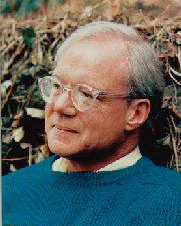[ Download "Community or Cult" by M. Scott Peck - 27k ]
[ Download Acrobat Reader to view ]

In 1981 I began to be invited to conduct workshops on "spiritual growth". It immediately became obvious that such workshops could be significantly effective only when they were highly experimental. Mostly by luck, I was able to discern a few guidelines for leading these groups of up to sixty through the stages I came to call "pseudo-community", "chaos", and "emptiness" into a genuine, albeit temporary, community. It was a powerful process, and a number of the participants did seem to achieve a modicum of "spiritual growth". Almost from the beginning, however, my primary personal passion was not for the resulting individual gains involved but for the group as a whole, it was for community.
When Lily and I met with nine others in December 1984 to first establish FCE, we had no more of a coherent vision than simply that "community is a good thing". We wanted to see that it was spread, and we correctly assumed that well selected women and men could be quite quickly trained to do so.
Over the next eight years the facilitators, and other leaders of FCE succeeded in elaborating the initial few guidelines for community building into a complex system of interlocking, often paradoxical, rules, norms or principles for healthy group behavior. An interlocking system of norms governing group behavior is essentially the definition of culture. By 1991 it had begun to dawn on me that what we call community is a very particular- and particularly healthy- culture.
It also happens to be a culture that many people from virtually all more "traditional" cultures - women and men, rich or poor, of every race, nationality and religion - can and do "buy into". When I retired from its Board of Directors in late 1993, FCE leaders - often with great initiative, imagination and courage - had led groups successfully into community not only throughout the English speaking world but even in foreign speaking countries using translators, and even in situations of severe pre-existing conflict. Since then the list grows almost monthly: Taiwan, Hong Kong, South Africa, Russia, Pakistan, Sri Lanka, and on and on.
Although Lily and I had no such grandiose vision when we helped to start it over thirteen years ago, today I believe what FCE most radically (together with other such as CBIB, ICA) is about is forging the outlines of a new, planetary culture - a culture of genuine civility as opposed to the pseudo-civility of traditional diplomacy.
And that's where my passion lies. I do not mean it is my sole passion in regard to FCE. I remain passionate about each and every individual who makes any psychospiritual gain through any FCE workshop. But such gains are not unique to FCE. What is most unique about, I believe, FCE is its almost daily experimental work of supra-national culture building - whether that work is accomplished in Des Moines and Duluth or Moscow and Taipei.
In my reflective old age all this does not seem to have been pure accident. I cannot specify God's role, but I can be somewhat more specific about Lily's and my own, working together.
Fifteen is often a very tough but very critical age for a human being. It so happens that on one side of the world at the age of fifteen Lily decided to leave the traditional Chinese culture in which she was raised. It took her two years before she was able to actualize that decision by emigrating alone from Singapore to the US, at the age of seventeen. And it was at age fifteen on the other side of the globe, I decided to leave the traditional WASP culture in which I had been raised. My decision was actualized by quitting a prestigious prep school, but it would be years before I was fully conscious of what it all meant.
In any case, almost fifty years ago Lily and I each left our traditional cultures. But where were we to go? There was then no clear-cut new culture waiting to welcome us - at least not one we could totally stomach. So we became two people without a country, so to speak - or, more accurately, without any cultural allegiance. In this light it is not an accident, I suspect, that we met and married. Or that twenty-five years after our marriage we should have played a role in starting FCE. Or that today, still in a minority, and on the fringe, we are still groping for a majority culture to which we can belong. But the grace of it all, thanks to FCE, is that we're no longer groping alone. And that feels to me very passionate indeed.